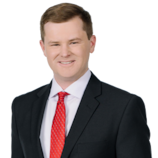FAIRMONT, W. Va. — Fairmont State University faculty are working to help their communities during the coronavirus pandemic by making and distributing masks when no medical grade Personal Protective Equipment is available.
Dr. Janie Leary, associate professor of Community Health, and Dr. Jason Noland, assistant professor in the School of Education, Health & Human Performance, are making masks to be given to health professionals and social service workers.
Leary made her first mask for a childhood friend who is now a first responder and it just grew from there.
“We know that N-95s are the best, but we can’t get them. These are better than nothing,” she said. “If a first responder must go to a scene, you give them what they ask for. That’s been the big thing...you can’t wear a mask and expose them...we’re doing the best we can with what we have.”
Leary is also working with the West Virginia Mask Army and is spreading awareness for the need of a hub in the north central part of the state where people can collect materials and drop off masks.
“If there was somebody in the Fairmont area that could act as a hub, that would be ideal,” she said. “Right now, I’ve made close to 400 masks and it’s worked out pretty well.”
Noland saw the call for people to make masks on Facebook but was unsure if it would be helpful. Once he saw U.S. Sen. Joe Manchin request West Virginians to help and share a pattern, he went out to get elastic and fabric to make the masks.
"My first recipient was a family friend, who is older, and works home health and has clients in their 90s. I asked her if they were given protective gear during this time and she relayed that they were given gloves, but not masks,” he said. “I posted a picture of delivering those masks and shared it on my Facebook. With my post, I said that I wanted to focus my efforts on individuals who work in the health industry, and local practices that do not have the social media power as larger practices and hospitals and requested my Facebook friends to let me know if they knew of people or places that had need.”
Since he started, Noland has distributed about 50 masks to people in his community. As he gets requests, he will continue to make them, free of charge, until his supplies run out. Making masks just seemed like the thing to do for him.
Noland said his desire to keep his distribution to home health, local practices, and those with underlying conditions comes from those home health workers who helped his mother in her final years because of Mitochondrial Disease.
“The people who work in home health and Hospice are very special people and the individuals that own local practices are really who kept her going for as long as she did,” he said. “I didn’t want those people to be forgotten as the world navigates the shortages of PPE.”
© 2020 Cox Media Group






